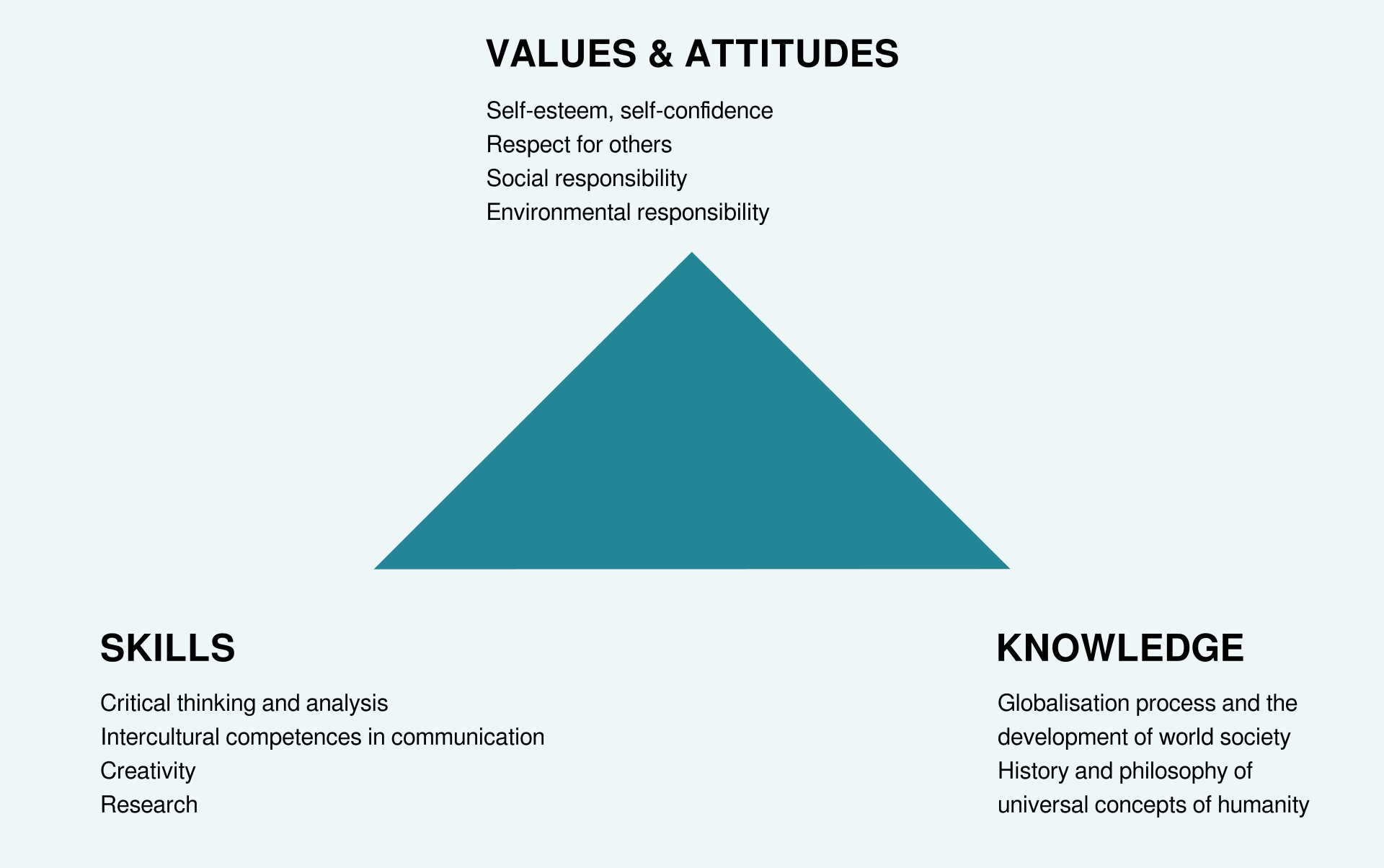Understanding the goal of Global Education
Globalization has brought about significant changes in the world in which we live, and these changes have had a significant impact on education. Global education seeks to prepare students for the challenges and opportunities of a rapidly changing world.

Education is a multifaceted structure comprised of various interconnected parts and involved parties. Choices made regarding one aspect of education at any given level trigger adjustments in other elements and related systems. This interdependency necessitates policymakers and decision-makers to establish comprehensive and harmonious educational policies and strategic plans, taking into account the sector and system as a whole. With the rise of challenges like swift digitalization and growing inequality, nations must craft robust and sustainable policies and strategies to create efficient, pertinent, and transformative educational systems.
💡 Lessons learnt: Education is a human right with immense power to transform.
Globalization has brought about significant changes in the world in which we live, and these changes have had a significant impact on education. Global education seeks to prepare students for the challenges and opportunities of a rapidly changing world. It encourages students to think critically, to understand the complexity of the world and to act responsibly as global citizens.
Global education has been around for some years now, and it has its roots in the international education movement that began in the early 20th century. The international education movement was a response to the growing interconnectedness of the world and the need for people to understand and appreciate other cultures. The goal of international education was to promote peace, understanding, and cooperation among nations.
The focus of global education was on the interdependence of nations, the impact of global issues on local communities, and the need for a global perspective in education. The United Nations Educational, Scientific and Cultural Organization (UNESCO) played a significant role in the development of global education. In 1972, UNESCO issued a report entitled "Learning to Be: The World of Education Today and Tomorrow," which emphasized the importance of education in preparing individuals for life in a rapidly changing world. In recent years, global education has gained momentum as the world has become increasingly interconnected.
Goals of Global Education
Global education is used to describe teaching concepts that are relevant to the world we live in today. It is an ever-evolving idea that includes many different aspects of education. It is seen as a way to help people become active citizens who work towards creating a more equal, peaceful, and sustainable world.
The goals of Global education are:
- Making people aware of the challenges and opportunities of the world today.
- Promoting cooperation and innovation in learning communities and challenges traditional education practices.
- Encouraging personal responsibility and motivating people to take action for a more just and equal world.
- Accepting diversity and interdependence and creating an environment where people can express themselves and build relationships based on solidarity.
- Helping learners to consider different options when making personal or public decisions and to reflect on the impacts of their choices.
- Learning about different cultures and ways of life, and promoting peace, justice, and sustainable development.
- Teaching people how conflicts can arise and how they can be resolved without violence.
Global Education in Formal Education
Global education has been integrated into formal education in a variety of ways in most countries. It is included in the curricula of many schools and universities around the world, and it is often taught as a separate subject or integrated into existing subjects such as social studies, history, or language arts. To help students become better citizens, schools include specific courses about citizenship in their curriculum. These courses teach students about human rights and civic participation.
In addition to these courses, schools can also use a hands-on approach to learning, where students take the initiative to create their projects. These projects can involve educating others in their community or acting as peer educators. This approach helps students develop important skills for lifelong learning and encourages them to become more independent and entrepreneurial.
Many schools and universities have developed their own global education programs. These programs often include study abroad opportunities, service learning projects, and other experiential learning opportunities that allow students to engage with the world in meaningful ways.
References:
Faure E., Herrera F., Kaddoura A.R, Lopes H., Petrovsky A.V., Rahnema M., Ward F.C. (1972). Learning to Be: The World of Education Today and Tomorrow. Unesco Paris. https://unesdoc.unesco.org/ark:/48223/pf0000001801
Bourn, D. (2015). The theory and practice of global learning.
Policy Paper on Global Education: A Global Vision on education - an Education for global citizenship https://www.youthforum.org/files/0007-08_GE-FINAL.pdf
A. Cabezudo, C. Christidis, M.C. Silva, V. Demetriadou-Saltet, F. Halbartschlager, G. Mihai (2008). Global Education Guidelines Concepts and Methodologies on Global Education for Educators and Policy Makers. North-South Centre of the Council of Europe. https://globalnirozvojovevzdelavani.cz/wp-content/uploads/2021/10/global-education-guidelines.pdf
J.M. Becker (2009). Goals for global education. https://doi.org/10.1080/00405848209543011
Stearns P.N.(2008). Educating Global Citizens in Colleges and Universities: Challenges and Opportunities
